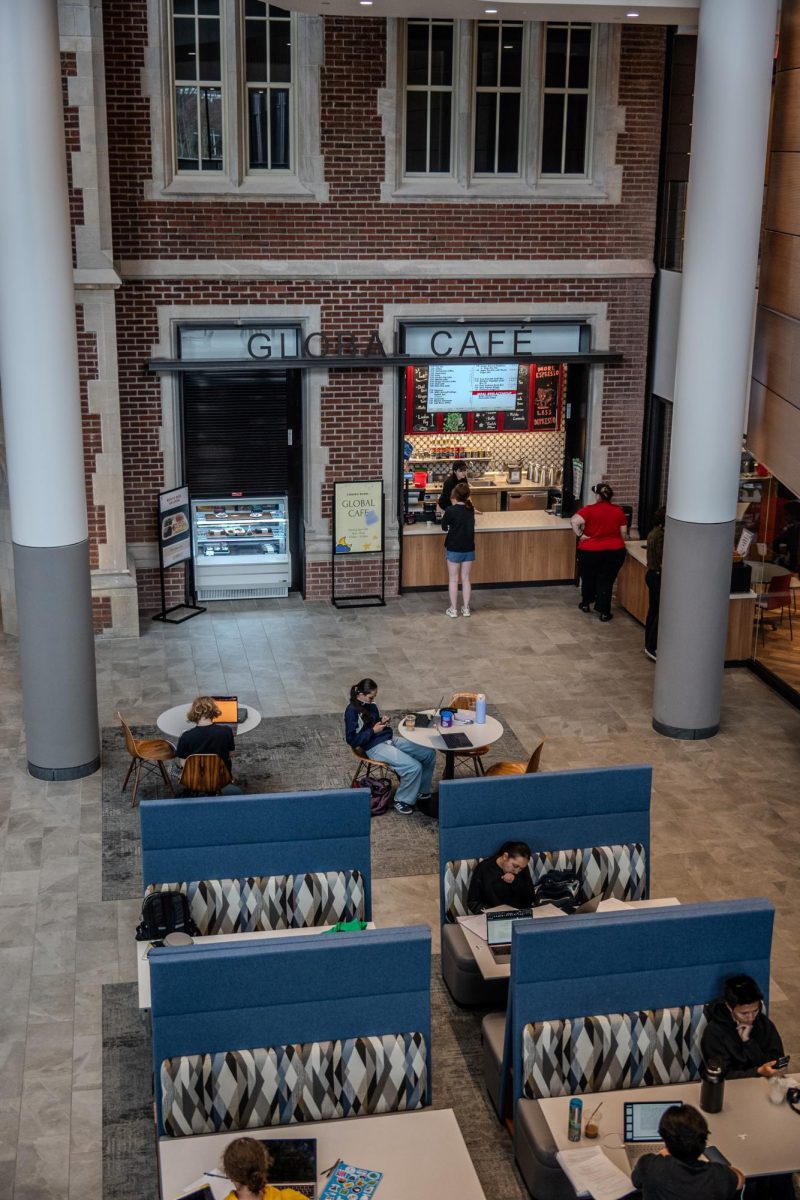House coordinators say they are struggling to grapple with the impacts of budgeting changes. Bella Villarreal `25, house coordinator of the Grinnellians Who Are Ready to Cook (GWARC) House, said their stipend was reduced to $500 per term, and this semester, the budget has been changed to $9 per resident. With seven residents in GWARC House, their total budget now stands at just $63 for the entire semester.
“I only found out about the $9 per resident budget after arriving on campus,” Villarreal said. “It’s not a weekly allotment — it’s for the entire semester. This cut affects every house coordinator and community advisor equally, despite the fact that our responsibilities are significantly different.”
Associate Director of Residence Life & Student Conduct Mfon Nwabuoku described shift as a change in the allocation of funding rather than a cut to Residence Life’s budget. In an email to The S&B, Nwabuoku wrote, “For some time, Residence Life has been looking for a way to provide funds for programming that reflects the actual cost of creating programming for the size of the resident group in question. We were finding that approving every proposed expenditure was slowing down programming and that a flat sum per area wouldn’t be fair to areas with more residents to serve. That’s how we arrived at the $9/resident (which also applies to Renfrow Hall).”
Using the funding provided by Residence Life, house coordinators are expected to host both all-campus and house-focused events every semester, but despite high event attendance, funding remains static. Smaller residence areas like GWARC house receive significantly less than residence halls like Renfrow Hall, which was constructed to house 110 students.
“We are running events that serve a critical function for students with dietary disabilities, and the current budget does not even begin to cover our needs,” Villarreal said.“We were told about the potential cuts during training, but the final decision came in a meeting where the people making the decision were not present, and none of us or our direct supervisors were consulted beforehand.”
For many students, the project house system provides a vital support network. GWARC House, for instance, caters to students with severe dietary restrictions — some of whom cannot eat at the campus dining hall or local restaurants. With reduced funding, house coordinators fear that event frequency will drop, leading to a loss of community cohesion.
“Before living here, I often had to eat every meal alone,” Villarreal said. “Our house provides a critical communal space where students can share meals and build a supportive community.”
Nwabuoko wrote that the goal of the new funding allocation system is to allow community advisors (CAs) and house coordinators to access the necessary funding to host events more easily: “Res Life staff (CAs and HCs) can spend up to that threshold without additional approvals as long as they meet other requirements for the number of events/amount of programming each semester.”
Villareal added that another major issue is the lack of distinction between house coordinators and CAs. Despite having vastly different responsibilities, both roles are currently governed by the same contractual terms.
“Community advisors are expected to work 16 hours per week,” Villarreal explained. “But house coordinators not only fulfill those duties — they’re also managing multiple projects that require an additional eight hours of work. Yet, we’re paid the same stipend.”
With no formal system to track their extra hours, many house coordinators feel overworked and under-compensated.
“We’re expected to deliver events that attract hundreds of participants with a budget that barely covers our basic needs,” Villarreal said. “This imbalance is frustrating, especially when compared to other housing groups like Renfrow Hall, which receives over $900 for three events per semester.”
Nwabuoku wrote that Residence Life has additional allocated funding for residences with fewer student residents: “For those areas with a small number of residents, the RLCs also have access to a small amount of additional funding ($499) that can be spent without direct supervisor approval as long as the planned activities meet our guidelines.”
In response to the challenges faced by house coordinators like Villareal, Kyra Pruszinski `27, president of the Union of Grinnell Student Dining Workers, highlighted the Union’s steward structure across workplaces.
“We were really lucky to have someone on our union executive board who works at SHIC,” Pruszinski remarked. “That person has provided real-time updates on budgetary issues, which has been critical in keeping us informed and prepared to act.”
The steward structure aims to place designated representatives in each workplace — individuals responsible for monitoring emerging issues, communicating with coworkers, and relaying critical information to the executive board.
“Imagine having lifeguards at every workplace,” Pruszinski said. “They’re not only keeping an eye on safety violations and policy changes but also ensuring that we aren’t left in the dark about what’s happening on the ground.”
This proactive approach would allow the union to address issues swiftly rather than relying on outdated, secondhand reports.
“We need firsthand accounts, not hearsay circulating after the fact,” Pruszinski said. “By building relationships with workers in various roles, we can create a network that helps us tackle issues as they arise.”
Reflecting on the broader implications of these budget cuts, Pruszinksi added, “Budget cuts of this magnitude send a clear message: student voices and needs are being sidelined. In today’s political climate, where many essential services face funding challenges, it’s crucial that the College listens to its community. Defunding or severely underfunding critical student programs will only deepen the disconnect between administration and the student body.”
Union representatives are working to expand the steward structure across campus. “Events at project and affinity houses are central traditions on our campus,” Pruszinski added. “The College can’t simply defund these parts of Grinnell without sparking a strong backlash from students who depend on them.”
“We continually review our processes, programming, and requirements in Res Life with an emphasis on listening to student and staff feedback and continually improving our programs,” Nwabuoku wrote.
Editor’s note: This article has been updated to include quotes from Associate Director of Residence Life & Student Conduct Mfon Nwabuoku. Updated Feb. 19, 2025, 2:00 p.m.













